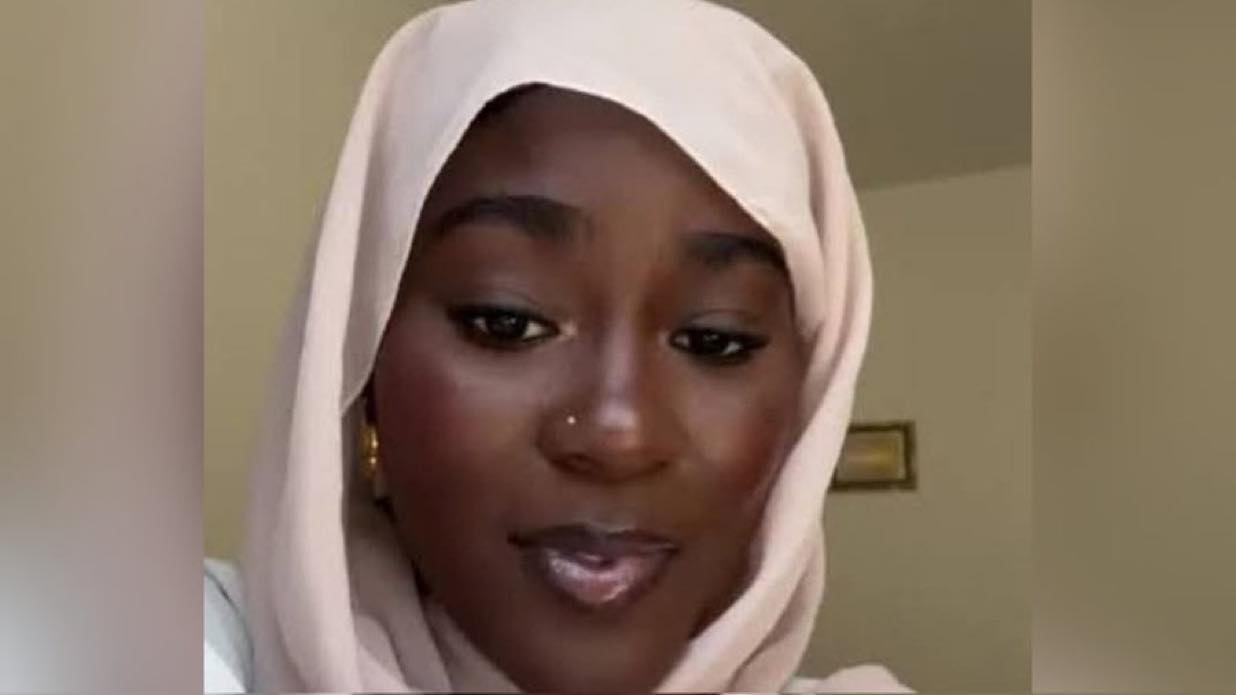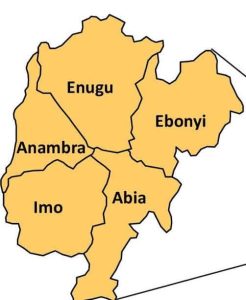Nigerian Lady Zainab Muhamadu Set To Face Sharia Court Trial In Zamfara For Converting To Christianity
A 22-year-old woman, Miss Zainab Muhamadu, is set to face trial this Friday in a Sharia court in Zamfara State for allegedly converting from Islam to Christianity—sparking renewed national and international concern over religious freedom, women’s rights, and the growing tension between constitutional law and the application of Islamic legal codes in northern Nigeria.
According to exclusive reports obtained by Sahara Reporters and corroborated by family and local sources, Zainab’s “crime” is simply choosing to practice a religion different from that of her upbringing.
“This is not a crime in a democratic country,” said a senior official of a human rights organization based in Abuja, who requested anonymity for security reasons. “What we are seeing is the criminalization of personal faith under the guise of religious law. This is deeply disturbing.”
Zainab’s journey into Christianity reportedly began several months ago when she met Pastor Samuel, a youth corper serving under the National Youth Service Corps (NYSC) scheme in one of the remote towns of Zamfara. Pastor Samuel, who ministers part-time with a local evangelical church, was involved in community development work and youth mentoring.
Zainab, described as bright and inquisitive, attended a vocational training workshop organized by Samuel’s NYSC group. According to those close to the corper, the two developed a friendship rooted in shared interests and spiritual conversations.
“She was curious about his faith,” said a friend of Samuel. “They talked a lot. She asked questions, he answered. Eventually, she made a personal decision to become a Christian.”
But what should have been a private spiritual decision soon turned into a state affair.
The situation escalated after Zainab confided in a close friend, who, rather than offering support, informed her family. Her parents, furious over what they called a “betrayal of the family and faith,” involved local Islamic leaders. Religious and community pressure mounted quickly.
Within days, Zainab was reported to local Sharia enforcement agents, popularly known as Hisbah. She was arrested and detained. Multiple sources indicate that she has been held without access to legal counsel or communication with outside supporters.
Her alleged “apostasy” has now led to formal charges under the Sharia legal system, which operates parallel to secular courts in several northern Nigerian states, including Zamfara. Zainab is scheduled to appear before a Sharia court in Gusau, the state capital, on Friday, May 24, 2025.
Nigeria’s 1999 Constitution guarantees the right to freedom of thought, conscience, and religion. Section 38(1) explicitly states:
“Every person shall be entitled to freedom of thought, conscience and religion, including freedom to change his religion or belief…”
However, the situation is more complicated in states that have adopted Sharia law, where religious norms are codified into enforceable statutes. Zamfara was the first state to adopt full Sharia law in 2000 under the administration of then-Governor Ahmad Sani Yerima.
In Sharia courts, apostasy—leaving Islam—is often treated as a criminal offense, particularly if the person is seen to be “spreading” another faith or “insulting” Islam by their actions.
YOU MAY READ
Respect and Dignity: A Call to Honour the Sultan of Sokoto
But according to several constitutional lawyers, these Sharia laws contradict federal law and international human rights agreements to which Nigeria is a signatory.
“This is not just a Zainab issue,” says Ayo Okechukwu, a Lagos-based human rights attorney. “This is about whether Nigeria is truly one nation under the Constitution. No Nigerian should be punished for exercising a fundamental right.”
Since the scandal broke, the whereabouts of Pastor Samuel remain unknown. Several church members in Zamfara fear he has gone into hiding after receiving death threats from community members who accuse him of “poaching souls.”
The NYSC has declined to comment officially on the matter, though an internal source says they are “monitoring the situation.” There is growing concern that Samuel could also face charges, or worse, vigilante violence if found.
“This young man only shared his faith, something that is common in both Christianity and Islam,” a Christian Association of Nigeria (CAN) official noted. “If we are no longer safe to share our beliefs in peace, what future does Nigeria have?”
The national response has been slow, muted by a mix of fear, religious sensitivity, and political caution. In the North, where religious sentiment runs high, few are willing to speak openly in defense of Zainab.
However, across southern Nigeria and in the diaspora, the story is causing shock and outrage.
On X (formerly Twitter), the hashtag #FreeZainabNow began trending late Tuesday evening, with activists, pastors, and human rights groups calling for her immediate release.
“Zainab’s case is a test for Nigeria’s democracy,” wrote Reno Omokri, a popular commentator. “If we cannot protect the freedom of belief, then we are no longer a nation of laws.”
Others, including Muslim reformers, have expressed discomfort with the legal consequences of personal religious decisions.
“Islam does not support compulsion in religion,” said a prominent Islamic scholar in Kano, citing Qur’an 2:256. “But cultural practices in some northern states have become confused with divine law.”
International organizations like Amnesty International and Human Rights Watch are reportedly preparing urgent statements. There are expectations that foreign embassies, particularly those from the European Union and the United States, will weigh in, as religious freedom is a pillar of diplomatic engagement with Nigeria.
Nigeria remains on the United States Commission on International Religious Freedom’s (USCIRF) special watch list. An incident like this could renew calls for stronger sanctions or conditional aid.
“This is precisely the kind of case that can damage Nigeria’s global image,” says Dr. Joy Nkama, a diplomat formerly with Nigeria’s mission to the UN. “At a time when we are seeking foreign investment and goodwill, this sends the wrong message.”
If the Sharia court proceeds with the trial, Zainab could face punishment ranging from forced “rehabilitation,” family custody, public flogging, or even death, depending on how the case is framed. While no apostasy execution has occurred in modern Nigerian history, the legal ambiguity keeps many in fear.
Zainab’s legal team, if any is allowed to represent her, faces an uphill battle—not only against the legal structure but also against local public sentiment.
One lawyer, who has handled similar cases, told this reporter:
“There is often a mob mentality around such trials. Courts are under pressure not to appear lenient. But we will try to push for a constitutional override.”
Zainab’s case also shines a light on the unique vulnerability of women under both religious and secular systems in Nigeria. From forced marriages to denial of education and custodial abuse, women’s autonomy in some northern communities remains a contested terrain.
To many observers, Zainab’s trial is not just about religion—it’s about control.
“Had she been a man, the consequences might be different,” said Hajara Yakubu, a gender rights activist based in Kaduna. “This is about punishing a young woman for thinking for herself.”
As Zainab awaits her trial date on Friday, activists are mobilizing legal, diplomatic, and media interventions. Petitions are circulating. Protest letters are being sent to the National Human Rights Commission, the Ministry of Justice, and even President Bola Tinubu.
The silence of the Federal Government so far has been deafening, though insiders claim the President is being briefed. Public expectations are growing that he must make a statement defending the Constitution.
“If Tinubu says nothing, he legitimizes the trial,” said Prof. Chika Okafor, a political scientist at UNN. “The unity of Nigeria is on the line.”
Ultimately, Zainab Muhamadu’s case may come to symbolize the broader, unresolved conflict in Nigeria’s governance: how to balance the nation’s religious plurality with constitutional democracy.
It is a conflict that has claimed lives, caused countless silent sufferings, and threatens the rights of millions, especially religious minorities.
As Friday approaches, all eyes will be on the Sharia court in Gusau. But the real trial may be that of Nigeria’s conscience.
DISCLAIMER: The safety of all individuals named in this report is paramount. Some names have been altered or withheld to protect those at risk.





